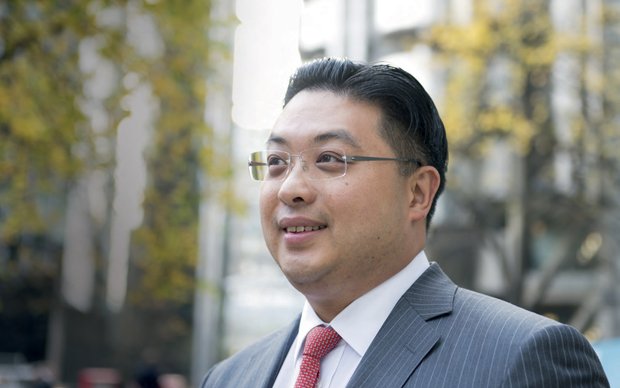The world is getting smaller. This metaphor, currently teetering on the verge of a cliché, has never held more true than it does today. For decades, western investors were sizing up Asian innovations, and now the reverse is increasingly the case, with deals like China’s Ctrip buying UK’s Skyscanner and Japan’s Softbank acquiring British ARM Holdings.
While the UK continues to generate IP-rich, innovative businesses at an unprecedented pace, China is building up its already robust investment trifecta of people, capital and market. But real business growth can only be unlocked when the twain shall meet. This according to entrepreneur, investor and philanthropist Dr Johnny Hon, who calls both London and Hong Kong home.
“The landscape has changed. When I first started, I was helping western investors invest in China. Now most of our work is helping Chinese investors invest in other countries,” he tells GrowthBusiness. Dr Hon is the chairman of Global Group, a regulated corporate finance advisor, which launched 20 years ago to connect East and West. The firm also has a family office division that works with high net-worth clients, mainly from Asia.
When Dr Hon was studying for his PhD in psychiatry at Cambridge, he was naturally helping budding entrepreneurs write up their business plans. After his PhD, it became a natural progression for him to move into business. “I’ve always focussed on venture capital and helping high net-worth clients with business, and I’ve worked in Asia, the Middle East, Eastern Europe, and moved to London. About eight years ago, I moved back to Hong Kong, and that’s where the main business is headquartered; between London and Hong Kong.”
For Dr Hon, the UK has always been an interesting place for investors. “It’s particularly interesting for Asian investors,” he adds. “When Asian investors want to invest in Europe, even with Brexit, they will still look at UK as a base. This is partly because it’s much easier to recruit Chinese employees in the UK than elsewhere in Europe. The UK has the second-largest population of Chinese students outside of China. Plus, investors already know how things work in the UK.”
That suits Dr Hon just fine, he adds, imagining a increasing trend for Asian interest in the UK. “The UK has a very strong spirit of entrepreneurship. But the junior markets have a problem with liquidity. The arrival of Chinese investors can only help entrepreneurs develop further.”
“China now has the market, capital and people. What it lacks is international brands, and maybe the creativity, innovation and international management team to run global businesses. The UK can provide those, and China can provide the capital.”
But growing businesses can be a shallow endeavour if it doesn’t have a higher purpose, he adds. “I left medicine and went into business, so I’ve always had the dream that if I make a lot of money I can do more to help than one doctor alone can do. Some of the money we make, we want to give back to society. In the UK, we work with the Duke of Edinburgh fellowship, and with the University of Oxford in donating a scholarship. In China, we help kids with congenital heart disease and Down’s Syndrome. It’s important to set an example so that our co-investors from Asia have that culture to give back to society. You also meet really interesting people that can widen your networks.”
The Duke of Edinburgh Awards, which gives young people around the world the opportunity to develop independence and leadership skills they can use in the real world.
“I’ve been helping them build connections in China and Asia, as well as raising funds for them. The Duke of Edinburgh Awards help a lot of underprivileged kids in Africa, and different parts of the world. It’s very important to me to work on the social mobility side of things,” he adds.
Global Group has extensive contacts in the UK and beyond, says Dr Hon, including members of the royal family who serve as directors. Other prominent directors include former BBC chairman and media personality, Lord Michael Grade.
“One of my closest friends in the UK, Geoff Morrow, is a famous song writer, and he introduced us to Lord Michael Grade, who is well-connected in the theatre world,” Dr Hon explains. This chance encounter led to his reviving and backing long-running West End musicals. “We took up the rights to Sunset Boulevard starring Glen Close, with the blessing of Andrew Lloyd Webber. And now we’re backing 42nd Street. It’s an interesting space,” he adds.
“We do a lot in biotech and fintech, but theatre is something different. There’s a huge demand for online content, but people want to switch off and go out for an evening. Theatre’s one of those things you have to be present for. You have to be there to enjoy it.”
So how does he stay ahead of trends in so many sectors? Dr Hon credits his thirst of continual learning. “I’m always on some kind of educational programme. I just completed a course with MIT. It’s important to me to keep learning,” he says.
To other entrepreneurs, his parting words of wisdom underscores the importance of being open to life’s many lessons. “Keep learning. Don’t be scared of failing; it only makes you stronger. Sometimes the UK markets don’t recognise this the way they do in America. Entrepreneurs need to fail to become stronger. It’s the process of building yourself up mentally. Be brave, do something you enjoy, and work harder than you’ve ever worked before.”







